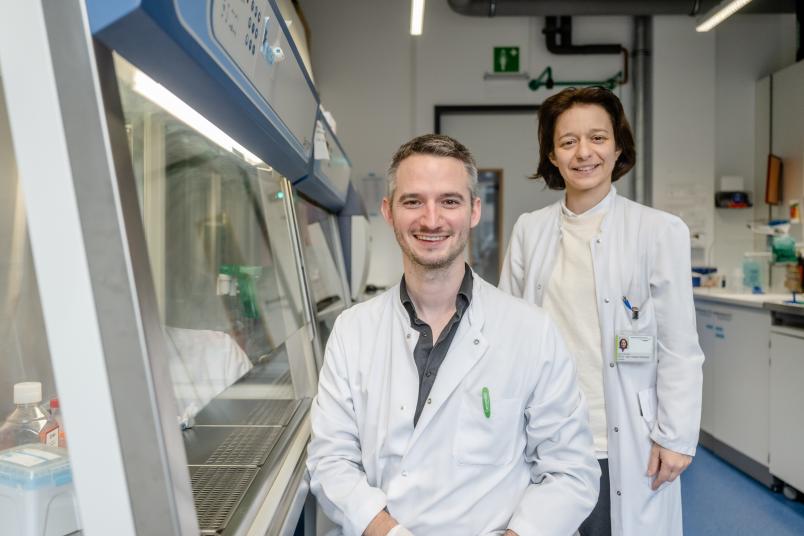
Medicine
Propionic acid protects nerve cells and helps them regenerate
Some autoimmune diseases attack the nerves in the arms and legs. Bochum-based researchers are pursuing a new approach to counteracting this damage.
Researchers at St. Josef Hospital Bochum have shown in lab experiments that propionate, i.e. the salt of a short-chain fatty acid, can protect nerves and help them regenerate. The findings could be useful for treating autoimmune diseases that cause damage to nerve cells, such as chronic inflammatory demyelinating polyneuropathy (CIDP). Propionate is naturally produced in the intestine when dietary fibre is broken down. In previous studies, a team from the same department at St. Josef Hospital Bochum, clinic of Ruhr University Bochum, Germany, had already demonstrated that people with multiple sclerosis (MS) are deficient in propionate and can benefit from taking additional propionate. Accordingly, the substance could also be useful for patients with CIDP.
The group headed by Dr. Thomas Grüter and Dr. Kalliopi Pitarokoili from the neurological clinic at St. Josef Hospital (Director: Professor Ralf Gold) published the results in the journal “Proceedings of the National Academy of Sciences of the United States of America” on 20. January 2023.
Propionate reduces cell death in cell culture experiments
CIDP patients suffer from sensory disturbances, muscle weakness and pain. The cause of the disorder is not fully understood. The immune system attacks the nerves in the arms and legs. The nerve sheath, an insulating coating around the nerve cells, is broken down and eventually the cells die. “The drugs that are currently available in the market are very expensive and primarily act on the immune system,” says Thomas Grüter. “A therapy that protects the nerves and aids regeneration is not yet available.”
In the current study, Thomas Grüter’s team has now explored the protective effect of propionate in cell culture and in animal experiments. The group isolated the two most important cell types in the peripheral nervous system from rats: nerve cells and Schwann cells; the latter form the sheath of the nerve cells.

The researchers cultivated the two cell types separately and exposed them to oxidative stress, which usually causes damage to the cells. The team treated some cell cultures with propionate and compared the effects with untreated cultures. Significantly fewer cells died in the treated cultures. In addition, the cells grew back more readily after treatment than when no propionate had been administered. Animal experiments confirmed these results: after administering propionate, the nerve cells had better protection against oxidative damage.
Insights into mechanism of action
The researchers also gained new insights into the mechanism of propionate action. They showed that the substance targets the receptor FFAR3 on the surface of nerve cells and Schwann cells and also affects the reading of DNA via histone molecules. This produces new enzymes and proteins that protect against harmful influences and help repair damage.

Context: studies with MS patients showed positive effects of propionate
The findings from previous studies with MS patients suggested to the Bochum researchers that propionate could have a beneficial effect on CIDP patients. The research group headed by Professor Aiden Haghikia had shown that taking propionate has an anti-inflammatory effect in people with multiple sclerosis and reduces the relapse rate.